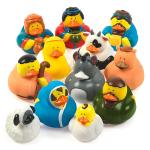If you were paying attention at church yesterday, then you probably heard that the season of Advent begins next Sunday.
Advent is a time of preparation for the coming of God as a baby in a manger in Bethlehem. It marks the beginning of the Christian calendar, a year that culminates at Easter, with the celebration of the resurrection.
Advent also marks a moment in time when God needed us.
I don’t mean that there was, or is, some deficiency on the part of God that only we could “fix” or help God with. I mean that in God’s sovereignty, God chose to need us.
God chose to rely on us to accomplish God’s will.
That might sound strange, perhaps even a bit blasphemous, but think back on the story of Jesus’ birth in the Gospels.
Mary was the woman God need to say “yes” to the daunting task of carrying God in her womb.
Elizabeth was the person God needed to comfort and console the mother of his Son.
Joseph was the man God needed to stand between Mary and her persecutors, to protect her and care for her needs.
The innkeeper was the person God needed to provide a place for God to enter into the world.
And as a couple, Mary and Joseph were the people God needed to ensure the survival of the infant Jesus, providing food, shelter, clothing, protection, and love. Everything a helpless infant needs to live.
To put it simply, even the Good Shepherd needed good shepherds to watch over him.
For many of us, our knee-jerk reaction to this may be to argue that God “could have” somehow miraculously done all of this without the help of people. But God didn’t. And that should tell us something.
God may not intrinsically need our help, but God has chosen to need our help. God has chosen to invite us into the divine drama of redemption and to trust us to be more than just audience members, more than just scenery filling up the background.
We see this particularly in the season of Advent, a time that reminds us of the audacity of an infinite God.
It tells us about the Godhead being veiled in flesh, but it also reminds us not only that God took on flesh, but that the incarnation was a collective effort that required both a Holy Spirit and human hands to see it through. That, in turn, reminds us that God has faith in us, faith that those whom God called “good” in the garden could be the ones to help make the world a garden once more.
Though we may not realize it, the season of Advent, when we prepare for the coming of God, is in many ways a prophetic moment in which we declare a second coming of God when the work that began in a manger will finally be brought to completion.
This means that as people who live between the sound of an infant’s cries and the trumpets’ blast, we, like Mary and Joseph, Elizabeth and the innkeeper, and all the other anonymous actors in the drama of Jesus’ birth, have a calling to to care for the great gift we have been entrusted with – the Body of Christ.
We do this in much the same way that Mary and Joseph cared for the baby Jesus.
When we feed the hungry, clothe the naked, give the thirsty something to drink, and tend to the sick we are caring for the least of these, the helpless who depend on others for their survival.
The infant Jesus was helpless. He depended on others to be fed, to be clothed, to be given something to drink, and the be cared for when he was sick. For a time, Jesus was the least of these. Which means in a very real way, whatever we do for the least of these we are doing for Jesus.
When we do care for the least of these we are very literally incarnating the past and future hope of the Advent season. By incarnating the Advent season we become participants in a prophetic reenactment of the nativity story as we ourselves make the necessary preparations for the One who has come and is coming again,
So this year during Advent, don’t just sit back and wait for the arrival of the King.
God needs your help.
Go out and prepare the way for His return.
Grace and peace,
Zack Hunt













